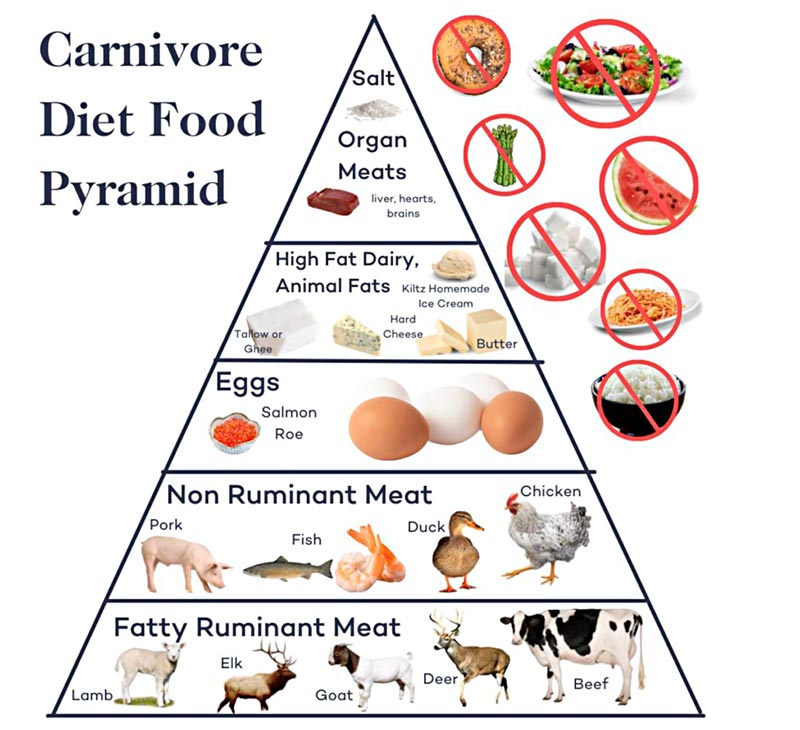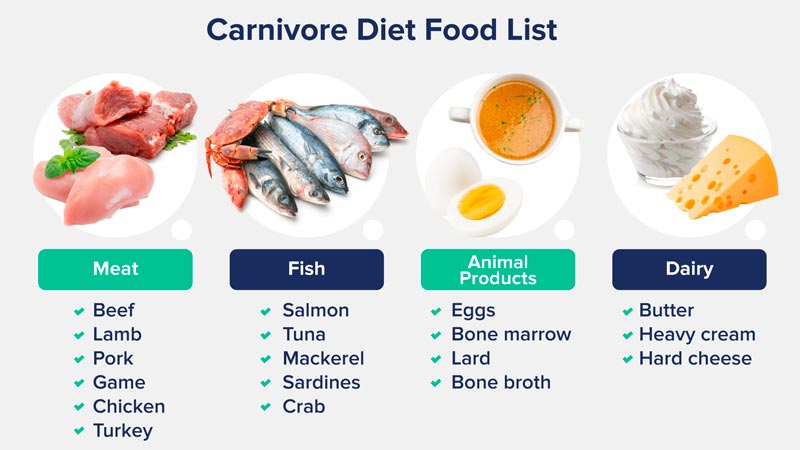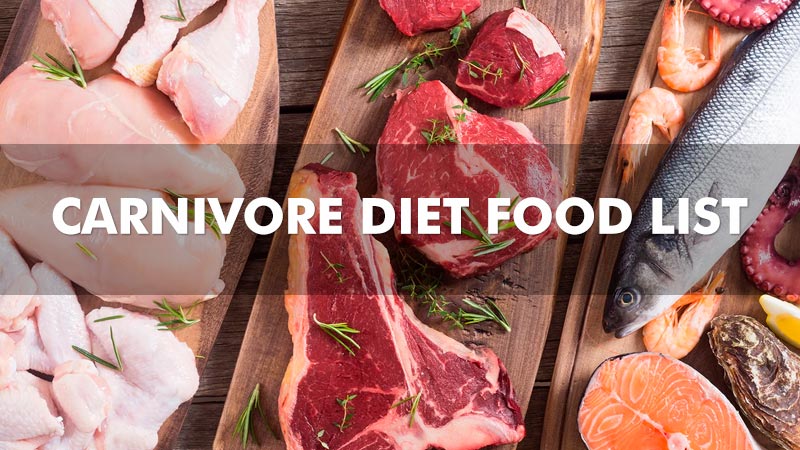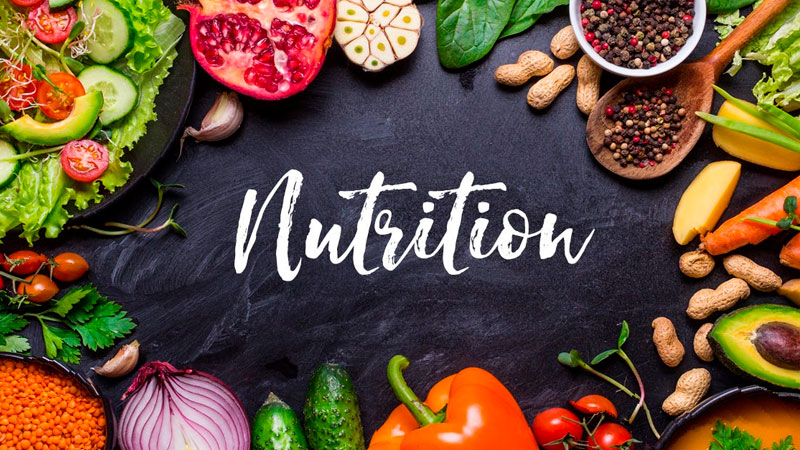The carnivore diet has become increasingly popular in recent years as a way to improve health and lose weight. The diet is based on the idea that humans evolved as hunters and gatherers, and that our bodies are best adapted to consuming meat.
Table of Contents
As a result, followers of the carnivore diet only eat animal products, such as meat, fish, eggs, and dairy.
For those considering trying the carnivore diet, it is important to have a clear understanding of what foods are allowed and what should be avoided. The diet typically excludes all plant-based foods, including fruits, vegetables, grains, and legumes. This means that followers of the carnivore diet must rely solely on animal products for their nutrition. While this may seem restrictive, many proponents of the diet claim that it has numerous health benefits, including improved digestion, increased energy, and weight loss.
To help those interested in the carnivore diet, this article will provide a comprehensive list of foods that are allowed on the diet, as well as tips for meal planning and preparation. By understanding the basics of the carnivore diet and having access to a variety of delicious and nutritious recipes, anyone can successfully follow this unique and controversial way of eating.
The Basics of Carnivore Diet
The carnivore diet is a dietary approach that involves consuming only animal products. It is also known as a zero-carb or all-meat diet. The diet is based on the idea that humans evolved as carnivores and that our bodies are best suited for a diet that is high in animal protein and fat.
The carnivore diet typically consists of meat, fish, eggs, and dairy products. It excludes all plant-based foods, including fruits, vegetables, grains, and legumes. Some people on the carnivore diet also consume small amounts of animal-based fats, such as butter or lard.
One of the main benefits of the carnivore diet is that it can lead to rapid weight loss. This is because the diet is very low in carbohydrates, which can cause the body to enter a state of ketosis. In this state, the body burns fat for energy instead of glucose.
However, the carnivore diet is not without its risks. It can be difficult to obtain all of the necessary nutrients from animal products alone, and a lack of fiber can lead to constipation. Additionally, the high amounts of saturated fat in the diet can increase the risk of heart disease.
Overall, the carnivore diet is a controversial dietary approach that may be beneficial for some individuals but is not recommended for everyone. It is important to consult with a healthcare professional before starting any new diet.

Meat and Poultry
Beef
Beef is a staple in the carnivore diet. It is a great source of protein, vitamins, and minerals. When choosing beef, it is important to opt for grass-fed and grass-finished beef, as it is higher in nutrients and healthier than grain-fed beef. Some cuts of beef that are popular in the carnivore diet include ribeye, sirloin, and ground beef.
Lamb
Lamb is another great source of protein and nutrients. It is also a good source of healthy fats. Lamb is often recommended for those who are sensitive to beef or for those who want to switch up their protein sources. Popular cuts of lamb include lamb chops, leg of lamb, and ground lamb.
Chicken
Chicken is a lean protein source that is easy to find and prepare. It is also a great source of vitamins and minerals. When choosing chicken, it is best to opt for pasture-raised chicken, as it is higher in nutrients and healthier than conventionally raised chicken. Popular cuts of chicken include chicken breasts, thighs, and wings.
Turkey
Turkey is another lean protein source that is easy to find and prepare. It is also a good source of vitamins and minerals. When choosing turkey, it is best to opt for pasture-raised turkey, as it is higher in nutrients and healthier than conventionally raised turkey. Popular cuts of turkey include turkey breasts, thighs, and ground turkey.
Pork
Pork is a great source of protein and nutrients. It is also a good source of healthy fats. When choosing pork, it is important to opt for pasture-raised pork, as it is higher in nutrients and healthier than conventionally raised pork. Popular cuts of pork include pork chops, pork tenderloin, and ground pork.
Seafood
Fish
Fish is an excellent source of protein, omega-3 fatty acids, and other essential nutrients. It is a staple food in the carnivore diet. Here are some of the most popular fish options:
| Fish | Net Carbs (per 100g) |
|---|---|
| Salmon | 0g |
| Tuna | 0g |
| Cod | 0g |
| Trout | 0g |
| Halibut | 0g |
These fish options are low in net carbs and high in protein, making them perfect for the carnivore diet. They can be prepared in a variety of ways, such as grilled, baked, or fried.
Shellfish
Shellfish is another great source of protein and other essential nutrients. They are also low in net carbs and can be a great addition to the carnivore diet. Here are some popular options:
| Shellfish | Net Carbs (per 100g) |
|---|---|
| Shrimp | 0g |
| Crab | 0g |
| Lobster | 0g |
| Clams | 3g |
| Mussels | 4g |
Shrimp, crab, and lobster are great options for those who want zero net carbs. Clams and mussels have a slightly higher carb count but are still a good option in moderation. They can be boiled, steamed, or grilled.
Overall, seafood is an excellent addition to the carnivore diet. It provides essential nutrients and is low in net carbs.
Eggs and Dairy
Eggs
Eggs are an excellent source of protein and are a staple of the carnivore diet. They are also a great source of vitamins and minerals. Eggs can be cooked in a variety of ways, including fried, boiled, scrambled, and poached. They are also a great addition to many recipes.
| Type of Eggs | Protein Content |
|---|---|
| Chicken Eggs | 6 grams |
| Duck Eggs | 9 grams |
| Quail Eggs | 1.2 grams |
Cheese
Cheese is a great source of protein, calcium, and other essential nutrients. It is also a great addition to many recipes. There are many different types of cheese that are allowed on the carnivore diet, including cheddar, gouda, brie, and feta.
| Type of Cheese | Protein Content |
|---|---|
| Cheddar | 7 grams |
| Gouda | 6 grams |
| Brie | 6 grams |
| Feta | 4 grams |
Butter
Butter is a great source of fat and is allowed on the carnivore diet. It is also a great addition to many recipes. Grass-fed butter is preferred on the carnivore diet because it is higher in nutrients and healthier than regular butter.
| Type of Butter | Fat Content |
|---|---|
| Grass-fed | 11 grams |
| Regular | 11 grams |
That's it for the Eggs and Dairy section.
Beverages
Water
Water is the most important beverage for anyone following a carnivore diet. It is essential for hydration and helps to regulate body temperature, lubricate joints, and transport nutrients throughout the body. It is recommended to drink at least 8 glasses of water per day, or more if you are physically active or live in a hot climate.
Bone Broth
Bone broth is a nutrient-dense beverage that is made by simmering bones, meat, and vegetables in water for several hours. It is rich in collagen, gelatin, and amino acids, which are beneficial for gut health, joint health, and skin health. It is also a good source of minerals such as calcium, magnesium, and potassium.
To make bone broth, simply place bones and meat in a pot, cover with water, and simmer for at least 12 hours. Add vegetables and herbs for flavor, and strain the broth before serving. You can drink bone broth on its own, or use it as a base for soups and stews.
Overall, water and bone broth are the two main beverages recommended for those following a carnivore diet. They provide important nutrients and help to keep the body hydrated and healthy.
Supplements and Additives
Salt
On a carnivore diet, it's important to consume enough salt to maintain proper electrolyte balance. This is especially true during the adaptation phase when the body is transitioning from burning glucose to burning fat. Some people may find that they need to increase their salt intake even further if they experience symptoms such as headaches, fatigue, or muscle cramps.
One way to ensure adequate salt intake is to use high-quality sea salt or Himalayan pink salt. These types of salt contain a variety of minerals that are beneficial for health. It's important to note that table salt is not recommended as it is highly processed and lacks the same mineral content.
Vitamins
While a carnivore diet can provide many essential vitamins and minerals, some people may choose to supplement with certain vitamins to ensure they are meeting their needs. It's important to note that supplements should not be used as a replacement for a healthy diet.
Vitamin D is one of the most important vitamins to consider supplementing on a carnivore diet, especially for those living in areas with limited sun exposure. Vitamin D is essential for bone health, immune function, and overall well-being.
Other vitamins that may be worth considering include vitamin K2, vitamin B12, and magnesium. It's important to speak with a healthcare provider before starting any new supplements, as some vitamins can interact with medications or have side effects.
Overall, while supplements can be helpful for some people, it's important to prioritize a nutrient-dense diet first and foremost.

Carnivore Diet Myths and Facts
There are many myths surrounding the carnivore diet, some of which are simply not true. Here are a few common myths and the facts that debunk them:
Myth: The Carnivore Diet is Unhealthy
One of the biggest myths about the carnivore diet is that it is unhealthy. Critics argue that the diet is too high in saturated fat and lacks essential nutrients like fiber, vitamins, and minerals.
However, proponents of the carnivore diet argue that it is actually a very healthy way of eating. They point to the fact that the diet is high in protein, which is essential for building and repairing muscle tissue. They also argue that the diet is low in carbohydrates, which can help to regulate blood sugar levels and reduce inflammation in the body.
Myth: The Carnivore Diet is Difficult to Follow
Another common myth about the carnivore diet is that it is difficult to follow. Critics argue that it is too restrictive and that it is hard to get enough variety in your diet.
However, proponents of the carnivore diet argue that it is actually quite easy to follow. They point to the fact that the diet is very simple and straightforward, and that it eliminates the need to count calories or track macros. They also argue that there is actually quite a bit of variety in the diet, as there are many different types of meat and seafood to choose from.
Myth: The Carnivore Diet is Bad for the Environment
Finally, some people argue that the carnivore diet is bad for the environment. They point to the fact that meat production is a major contributor to greenhouse gas emissions and that eating meat is not sustainable.
However, proponents of the carnivore diet argue that it is possible to eat meat in a sustainable way. They point to the fact that there are many farmers who practice regenerative agriculture, which involves using livestock to improve soil health and sequester carbon. They also argue that eating meat from wild animals is a sustainable way to get protein, as it does not involve the carbon emissions associated with industrial meat production.
Conclusion
In conclusion, the carnivore diet is a highly restrictive diet that eliminates all plant-based foods and focuses solely on animal products. While some proponents claim that it can lead to weight loss, increased energy, and improved gut health, there is limited scientific evidence to support these claims.
It is important to note that the carnivore diet is not suitable for everyone, especially those with certain medical conditions or dietary restrictions. Additionally, the long-term effects of following a carnivore diet are not well understood, and it may lead to nutrient deficiencies if not carefully planned and monitored.
If one is considering trying the carnivore diet, it is recommended to consult with a healthcare professional or registered dietitian to ensure that it is safe and appropriate for their individual needs. It is also important to ensure that a variety of animal products are consumed to ensure adequate nutrient intake.
Overall, while the carnivore diet may have some potential benefits, it is important to approach it with caution and carefully consider its potential risks and limitations.
Eat well, live better!




